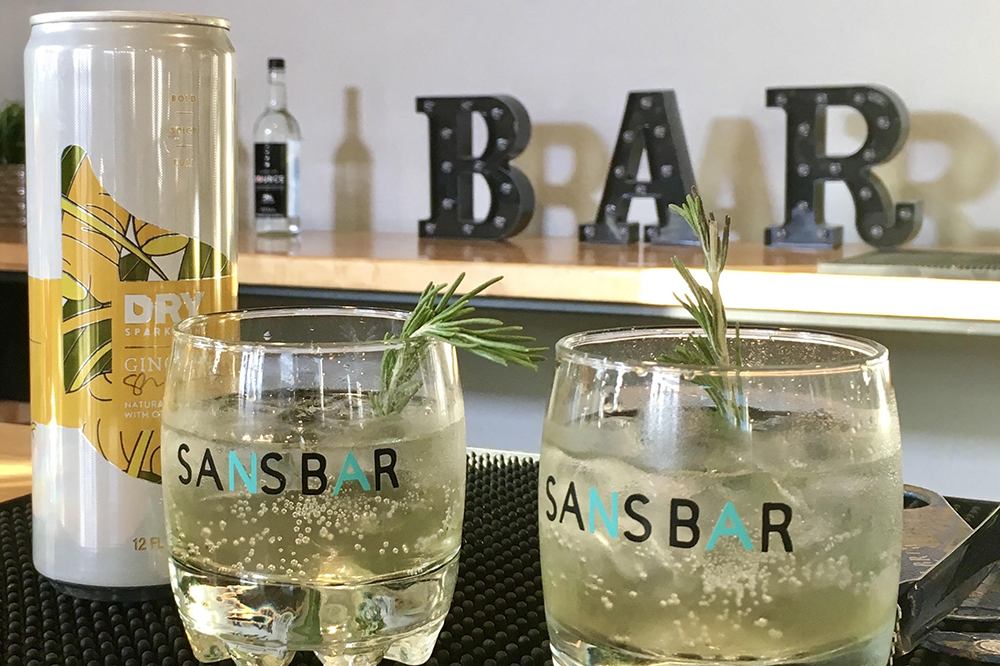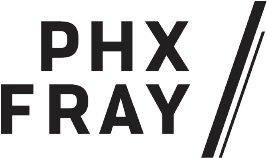Dry January + Beyond: the Alcohol-Free Movement Continues to Grow

What if we told you partaking in Dry January didn’t preclude you from dabbling in the explosive flavors of your favorite cocktail? Would you be more inclined to ditch the bottle of bourbon or let specs of dust gather between your vodka and tequila? The world of nonalcoholic mixed drinks has gained a tremendous amount of steam in recent years, with notable mixologists and tastemakers placing more value on a strong drink, minus the booze.
As a Brooklyn, New York-based journalist and author covering innovation within the hospitality realm, Julia Bainbridge has always been more concerned with how a drink tastes as opposed to what’s on the ingredients list. Bainbridge, who doesn’t drink alcohol herself, released the book “Good Drinks: Alcohol-Free Recipes for When You’re Not Drinking for Whatever Reason” earlier this year.
“Serendipitously, I removed alcohol from my life right around when alcohol-free beverage options started getting more interesting,” Bainbridge says. “Alcohol behaves in a particular way, and these drinks don’t have alcohol in them, so they’re going to be different. And that’s okay! I’m personally more interested [in] whether or not a drink tastes good than whether or not it tastes like what it should if it had alcohol in it.”
Bainbridge says the community of alcohol-free is wide and diverse, and formed by many smaller communities who are all exploring the creative world of booze-free beverages. One person heavily involved in providing a place where people can enjoy these drinks is Chris Marshall, the founder of Sans Bar in Austin, Texas.
“I was 23 when I stopped drinking and found there were no places that felt truly welcoming to someone who was abstaining from alcohol,” Marshall says. “I went on to become a substance use counselor and discovered my clients also dealt with the same struggle to remain social while not drinking. I left the clinical world and decided to devote my life to creating an alcohol-free social scene.”
With Sans Bar, Marshall offers a location where people can congregate socially and enjoy cocktails without alcohol. This year, the bar has shifted to providing virtual experiences and carryout options. But more importantly, he’s worked to maintain the connection with people who are interested in trying this style of beverage.
“I think the options are growing as beverage companies understand there is a non-alcohol spectrum within the community,” he continues. “While some people are not drinking for a short time, others are seeking long-term recovery and abstinence from alcohol. Each entry point along that spectrum is comprised of people who want different things from the beverages they consume.”
And while everyone involved in testing out these drinks come to the table with different needs and desires, one thing they’ll find is a growing variety. Bainbridge says that while a rising interest in moderating and understanding the role drinking plays in our lives may be anecdotal, the sheer amount of content on alcohol-free alternatives is very real.
“I do see more and more mainstream publications publishing stories on this alcohol-free movement, or alcohol-free beverages themselves, and that says something,” she notes. “That my book went into a second printing three weeks after publication says something. That it tied ‘Ottolenghi Flavor‘ for best-performing titles across Ten Speed Press, in terms of press coverage, says something, too.”
People are paying attention, clicking on articles and buying books about the subject, but Bainbridge is hopeful that in the near future this will be less of a niche topic and more of a fixture or mainstay in the hospitality industry.
“My hope is that, five to 10 years from now, a book like mine won’t need to exist. Alcohol-free cocktails will be incorporated into regular drinks books, as they’re already starting to be (see John deBary’s ‘Drink What You Want,’ Maggie Hoffman’s ‘Batch Cocktails‘ [and] Leo Robitschek’s ‘The NoMad Cocktail Book‘). And coverage of alcohol-free cocktails will be incorporated into drinks coverage in an ongoing fashion – not just in Dry January.”
Bainbridge recommends several booze-free options for people interested, including white verjus with tonic and soda water and Athletic Brewing Company’s Run Wild IPA. Marshall suggests alcohol-free brands Monday Gin, For Bitter For Worse and Wilderton. Ultimately, they both want people to think beyond the boozy drinks they associate with the term “cocktail.”
“I think there’s this perception that we must duplicate boozy drinks we are all familiar with,” Marshall says, echoing Bainbridge’s sentiment. “I reject that and say actual alcohol is just one dimension of a rich drink experience, and when you remove the booze, there’s a ton of experimentation both inside the glass and around it.”
If abstaining from alcohol is a focus, then there are a ton of options for delicious drinks. But if Dry January isn’t your thing, that’s fine, too. But don’t be surprised if your next favorite mixed drink is alcohol-free.
“[People] can drink their whiskey,” Bainbridge says. “That’s fine! But for those who don’t drink whiskey and have been wanting to level up from syrup and soda – just as the quality of American spirits, beers and wines has improved over the past couple of decades, drinking standards are finally being raised in the realm of alcohol-free cocktails.”
For more information about Julia Bainbridge and her work, visit her website www.juliabainbridge.com. To keep up with Chris Marshall and Sans Bar, visit www.thesansbar.com. Follow them on Instagram @juliabainbridge and @sans_bar, respectively.
Enjoy this piece? Consider becoming a member for access to our premium digital content. Support local journalism and start your membership today.

